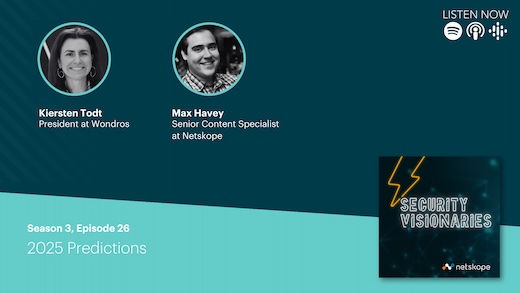We are thrilled to announce this quarter’s Netskope Cloud Report. Since the Netskope Active Platform looks across all enterprise cloud apps and normalizes activities and content, it’s a great way to find out how cloud apps are being used, what people are actually doing in them, what activities are constituting policy violations, and in what categories, and which apps are experiencing violations of data loss prevention policies.
A few key themes I want to bring your attention to. First off, cloud app growth continues its upward march, with now 508 apps per enterprise, on average. What’s different is that this is rapidly becoming not that big of a surprise. IT organizations are becoming more aware of the issue of shadow IT. They are now beginning to turn their attention to what people are doing in apps.
That brings me to my next theme, which is sharing. One of the key attributes of cloud apps is that they enable data sharing like nobody’s business. You can share anything in the cloud. A file, a link, a video. Build a report? Share it. Look up a customer record? Share it. Data is flying around like never before. It’s very cool, but also a little risky. What if it flies outside of the company? Someone wants to share a report with a contractor or a partner. Or even with their manager, but fat-fingers the name and shares it with someone they didn’t intend. Some interesting stats from the report around sharing: First, for every 1 upload in cloud storage, there are 3 shares. Kinda shocking! Second, 20 percent of the apps we track enable sharing. And that’s not just cloud storage. Third, 49 of the 55 categories we track have apps that enable sharing. These categories range from business intelligence to CRM to finance/accounting. Check out the report for the top 10 non-storage apps in which sharing occurs in the Netskope Active Platform.
But what really hits close to home for me is the marketing angle. The number of apps overall rose, as did the number of apps for our top five categories, marketing (61), HR (39), collaboration (38), storage (34), and finance/accounting (32). The biggie was marketing. Which got me thinking. And counting. Guess how many apps my small but mighty team of marketers uses here at Netskope? A whopping 50! We use Hootsuite for social campaign management, Adroll for ads, Wistia for videos, Dynamic Signal for social curation, Marketo for campaign management, and a host of data & analysis, productivity and project management apps ranging from Evernote to Trello, and more, of course.
Now, the reason the marketing category is so big is because it’s broad and kind of fragmented. It surely brought to light how many disparate activities we do on a daily basis. It also made me realize how CMOs are constantly under the gun to reach the right audiences with increasingly targeted and personalized messages and get those audiences to engage with them. They are doing a ton of measuring too, from page views to clicks to video views to surveys. They are garnering increasing budgets because these investments usually pay off. Digital tools that help people target audiences, get data, get prospects into the sales funnel, and measure campaign efficacy will help them beat the competition.
But as good as they are for business, marketing apps are also among the worst for enterprise-readiness. Granted, some apps (maybe like an ad or video-hosting platform) don’t need to be the poster child for security, but a shocking 98.3% of apps in use in the Netskope Active Platform were rated “medium” or below in our Cloud Confidence Index. Why is this? Well, some of the key reasons for this is they don’t let IT audit usage like admin, user or data access. So if an admin goes into an app and escalates privileges, who would know? Many lack data protection features like encryption of data-at-rest and separation of tenant data in the cloud. This means that if you have a breach, your customers’ data may be exposed. And if an adjacent tenant experiences data corruption or downtime, you may too. And finally, many lack important policy control features like support for complex passwords and multi-factor authentication.




 Atrás
Atrás 




















 Lea el blog
Lea el blog